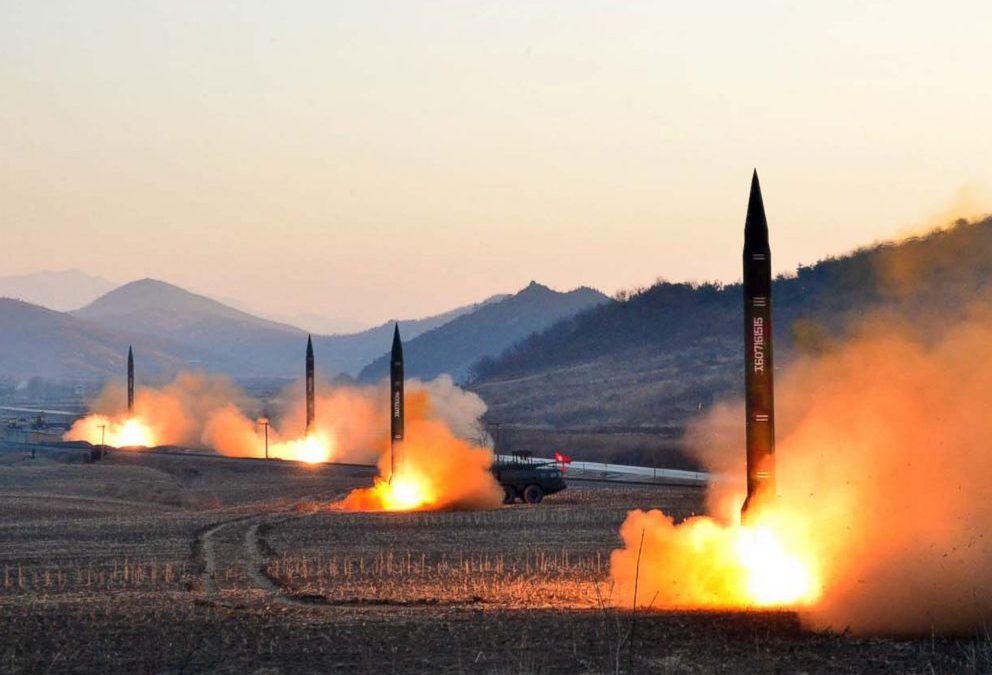WASHINGTON — Two former American diplomats who played a key role in the Six Party Talks with North Korea and have worked for both Democratic and Republican presidents, warned President Trump on Thursday to make no compromise on sanctions during his upcoming summit with dictator Kim Jong Un.
Christopher Hill, who served as the U.S. ambassador to Iraq under President Barack Obama, and Victor Cha, a previous top advisor on North Korean affairs to President George W. Bush who had been under consideration for ambassador to South Korea under Trump, declared that past negotiations with North Korea proved to be “not a success” and warned another misstep on the upcoming summit could be dangerous to stability in Asia.
“If this summit fails, it could take us a step closer to armed conflict, and without adequate preparation there’s a greater chance of failure,” Cha said during a hearing before the House Foreign Affairs Committee.
During the first Six Party Talks in 2005, North Korea made a commitment—unprecedented at the time—to “abandoning all nuclear weapons and existing nuclear programs and returning to an early date to the treaty of the nonproliferation of nuclear weapons.”
But despite what the world initially deemed a breakthrough, North Korea soon withdrew from the multi-lateral discussions and began a series of nuclear tests starting in May 2009, dashing diplomatic hopes of disarmament on the Korean peninsula.
Both Cha and Hill think it would not be likely to seek North Korea’s complete denuclearization. However, the pair of seasoned diplomats stressed the one thing, they believe, that Mr. Trump needs to avoid including in any concessions: weakening the historic sanctions imposed on North Korea by the U.N. Security Council.
“The United States must continue the application of its sanctions,” Cha said.
Senators across both parties seemed to agree with the diplomats’ conclusion.
“Our goal is to make sure sanctions aren’t off the table,” Republican Rep. Ted Yoho (R-Fla.) said.
Cha and Hill also cautioned President Trump against neglecting allies in the region and their unique interests. If conflict were to break out on the Korean peninsula, more than 25 million people could be at risk, according to House Rep. Gerry Connolly (D-Va.) – including 25,000 American troops.
“This is a testimony to our allies…we want to go in with a policy benefitting all of us in the region and not separating us from our allies,” Cha said.
South Korean President Moon Jae-In is currently preparing his own meeting with Kim Jong Un on April 27 and sent his national security advisor to Washington to meet with newly–appointed US counterpart John Bolton on Thursday.
Bolton, the new U.S. national security advisor appointed by President Trump, wrote an op-ed for the Wall Street Journal in February – before he joined the administration – titled “The Legal Case for Striking North Korea First,” advocating for a pre-emptive strike against North Korea.
The Trump administration is preparing for the high-stakes talks with Kim while understaffed, with key diplomatic positions empty or soon to be vacated, including the ambassador to South Korea and the assistant secretary of state for East Asian and Pacific Affairs. Special Representative for North Korea Policy Joseph Yun recently retired.
“Successful diplomatic negotiations will require a fully resourced and staffed State Department, a robust interagency team, and a disciplined strategy,” Rep. Connolly said. “The Trump Administration is woefully unprepared on each of these fronts.”
Even Trump’s nominee for secretary of state, CIA Director Mike Pompeo, expressed his concerns on the lack of preparation for President Trump’s meeting with Kim Jong Un, addressing the issue during his Senate confirmation hearing Thursday.
“I will start with those things that I think are the biggest risk to America’s capacity to execute its diplomacy. We don’t yet have an ambassador to South Korea, we need one,” Pompeo told the Senate Foreign Relations Committee.


